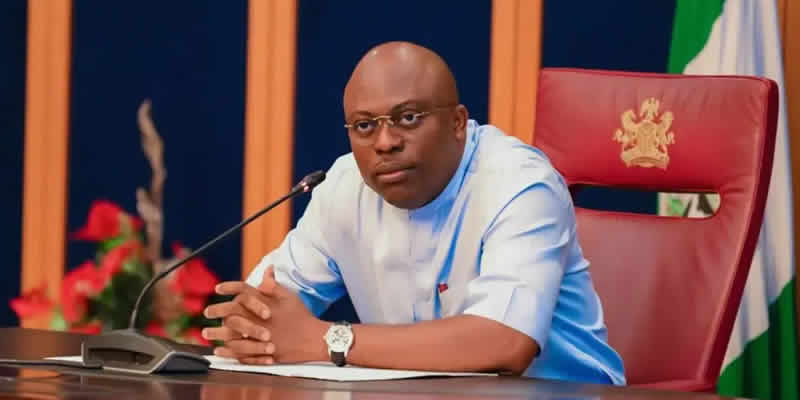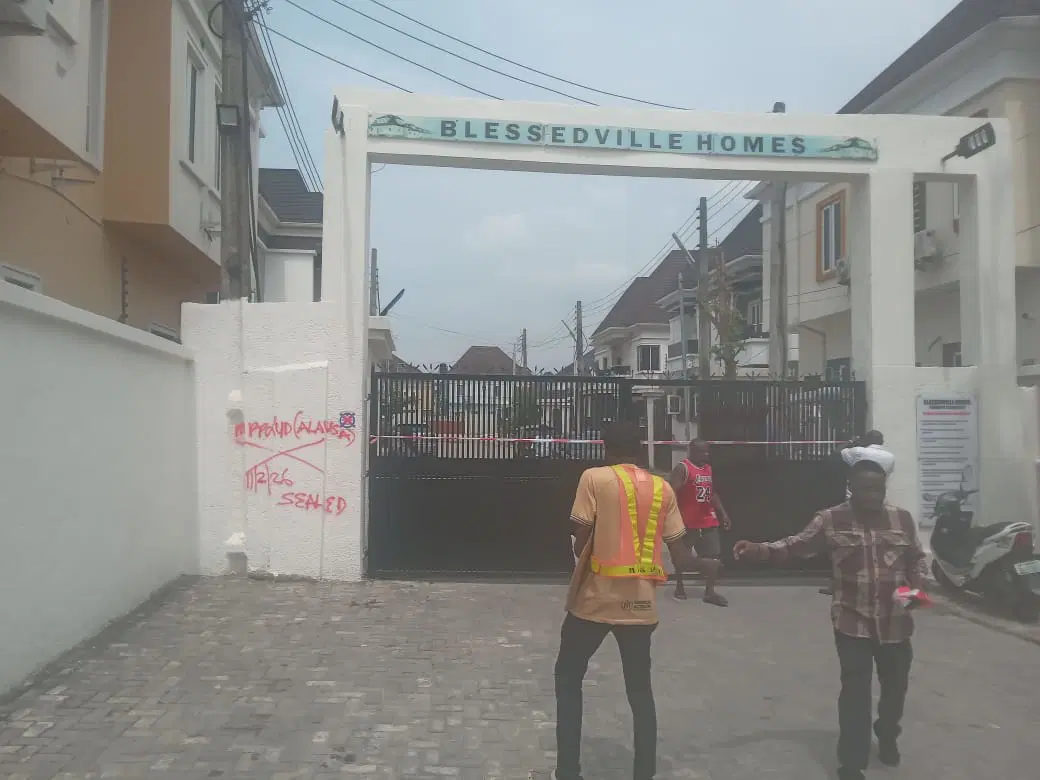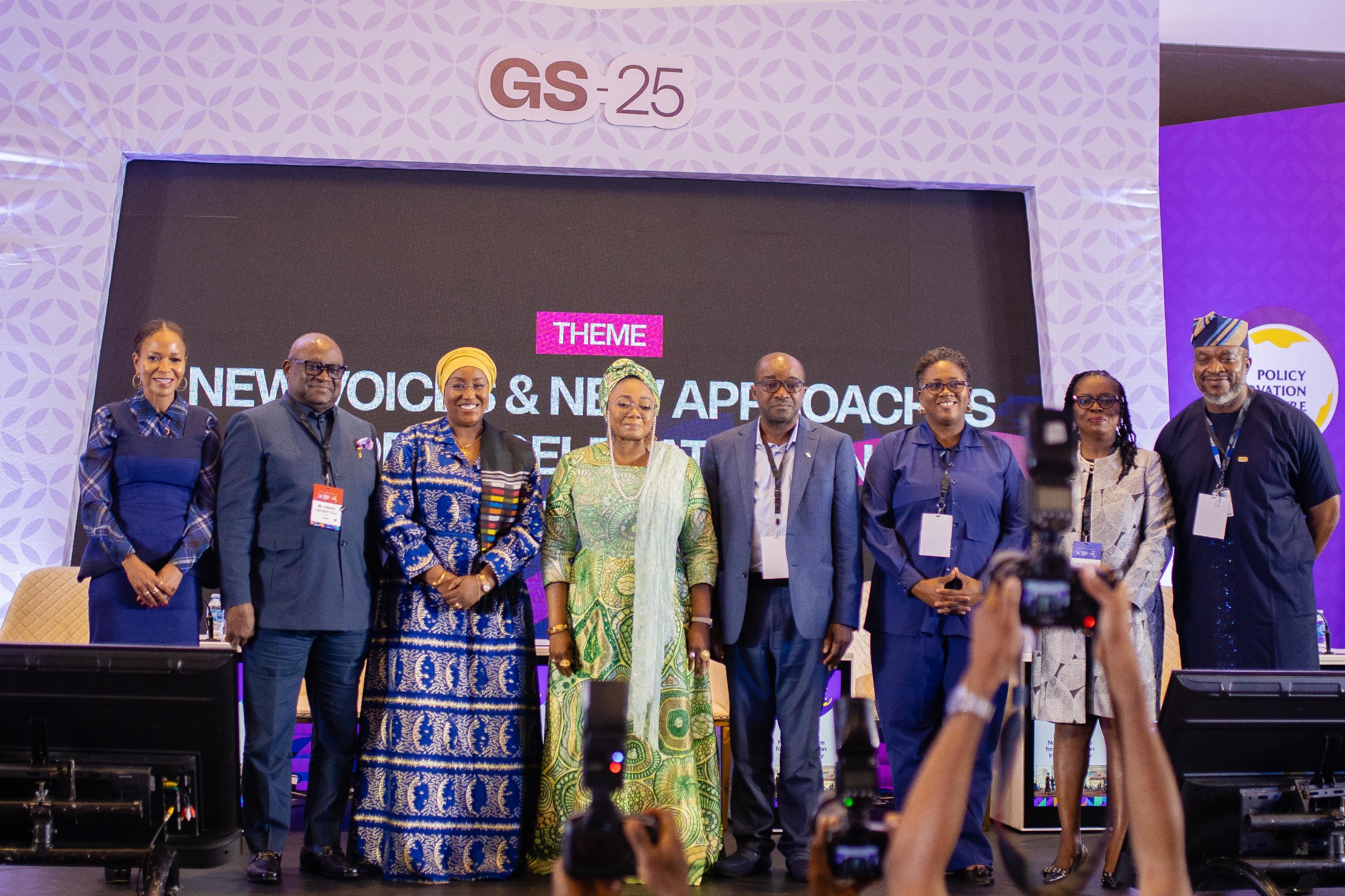By: Goodluck E. Adubazi, Abuja.
At the opening of the three-day Africa’s Largest Gender and Inclusion Summit 2025, organized by PIC and NESG, held on Wednesday, 3rd September 2025, at the Abuja Continental Hotel, the Federal Ministry of Women Affairs reaffirmed its commitment to placing women, children, youth, and vulnerable groups at the center of Nigeria’s national development agenda. The Ministry stressed that insights from the summit will directly influence policies and programs under the Renewed Hope Agenda aimed at driving inclusive growth and social transformation.
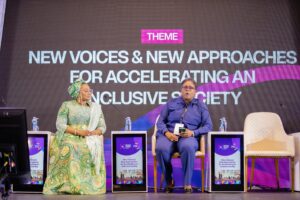
Highlighting stark gender disparities, the Minister of Women Affairs and Social Development, Hon. Imaan Suleiman-Ibrahim, emphasized that Nigeria’s ambition to become a $1 trillion economy depends heavily on empowering women, who comprise more than half of the population.
Standard Times Nigeria quoted the Minister as saying: “Despite women owning 43% of MSMEs, only 9% have access to formal credit, and leadership representation remains low—issues the government is tackling through transformative initiatives like the Renewed Hope Social Impact Interventions (RH-SII774).”
The Minister added that transformative programs are reshaping women’s lives across Nigeria.

“Since its launch in Nasarawa earlier this year, RH-SII774 has reached 18 states with interventions boosting women’s participation in agriculture, clean energy, skill acquisition, and market access,” she explained.
Accordingly, the Ministry also prioritizes family strengthening through the Families First Initiative and aims to establish a National Care Economy Framework to unlock women’s full productive potential.
The Minister noted that the program breaks barriers, citing state-by-state wins for women’s rights and leadership.
She highlighted recent successes, including Adamawa women gaining legal rights to land ownership and leadership roles, with vice-chair positions across all local councils held by women. Niger State now reserves vice-chairmanship seats for women, and young female leaders are emerging nationwide, including a 19-year-old councillor in Rivers State. In the private sector, women now occupy 22% of executive roles and lead more than 40% of Nigeria’s major banks.
The Honourable Minister further stressed: “From Hunger to Hope, Real-Life Impact of Women Empowerment Programs.”
A touching story from the field highlighted how the Nigeria for Women Project transformed a mother of four’s life—shifting her from predatory informal lenders to affordable credit, enabling her to provide for her family and invest in her children’s education. This, the Minister noted, embodies the true meaning of inclusion.
Hon. Imaan Suleiman-Ibrahim also emphasized that policy reform and representation remain the sure road to sustainable gender equality.
She stressed the Ministry’s support for the Special Seats Bill to secure women’s presence in legislative chambers, emphasizing that women’s leadership drives budget priorities toward social protection and national prosperity. Investing in certified gender professionals, she added, is also key to mainstreaming gender in national planning and service delivery.
Consequently, the Honourable Minister of Women Affairs challenged all stakeholders to accelerate inclusion beyond dialogue—embedding innovative mechanisms and collective action across government, the private sector, and civil society to ensure women, youth, children, and vulnerable groups benefit fully from Nigeria’s growth.
Appreciating partners and summit organizers, the Ministry committed to translating GS-25 insights into tangible change, reinforcing that empowering women remains the most effective tool for national development.
In a related development, Oley Dibba-Wadda delivered a powerful keynote address on this year’s theme: “New Voices and New Approaches for Accelerating an Inclusive Society.” She urged participants to move beyond traditional advocacy and embrace technology, storytelling, and personal accountability as tools for driving social change. Drawing on her own journey of vulnerability and healing through writing, she emphasized the power of owning one’s narrative and using digital platforms to amplify marginalized voices.
Highlighting the roles of youth, women, and the diaspora in challenging oppressive systems—particularly referencing The Gambia’s democratic transition—she called for a collective rejection of victimhood and encouraged individuals to speak out, tell their stories, and create inclusive communities across generations. Dibba-Wadda concluded by championing digital tools as democratizing forces that can unify diverse voices and accelerate progress toward a truly inclusive society.
Earlier, Mr. Udeme Ufot, Chairman of the Policy Innovation Centre (PIC), a leading initiative of the Nigerian Economic Summit Group (NESG), issued a call to action to all participants and delegates.
Welcoming a distinguished audience that included ministers, lawmakers, industry leaders, development partners, and civil society actors, Mr. Ufot set the tone for what promises to be a transformative three-day event focused on reimagining Nigeria’s path toward an inclusive society.
In a keynote welcome address, Mr. Ufot emphasized that inclusion is not just a policy goal—it is a national responsibility and a moral necessity.
“This summit challenges us to think differently, act boldly, and accelerate inclusivity as a national and collective priority,” he declared, urging participants to engage courageously and collaborate across sectors.
This year’s summit theme, “New Voices and New Approaches for Accelerating an Inclusive Society,” signals a shift from traditional conversations to bold innovation and unheard perspectives. According to Mr. Ufot, it is time to listen to the often-sidelined voices of rural women, youth, persons with disabilities, and other marginalized communities.
“Inclusion begins with listening,” he said. “But beyond listening, we must innovate.”
He called for the deployment of technology as a tool for inclusion, data-driven social protection systems, and financial models that break down barriers for women and small businesses.
A recurring highlight of the summit series is the Purple Book—a curated collection of insights, policy recommendations, and actionable outcomes. Now in its third edition, the Purple Book has become a go-to reference for advocacy, legislative engagement, and cross-sector collaboration.
“The Purple Book is more than a report—it’s a living testimony of our commitment,” said Ufot, reaffirming the PIC’s pledge to ensure that dialogue at GS-25 leads to measurable reforms.
Speaking to the broader context, Mr. Ufot highlighted how nations around the world are redefining inclusion in light of intersecting challenges—gender, technology, climate, health, and trade. For Nigeria, he said, the stakes are high.
“Gender inequality, social exclusion, and poverty are not abstract—they are seen in the market woman who can’t access credit, the girl denied education, and the person with disability unable to work,” he stated. “Each of these is a call to action.”
Unlike many conferences that end in rhetoric, GS-25 is built around accountability and action. The summit has a strong track record of translating ideas into real-world impact through advocacy tools and policy roadmaps developed by the PIC.
“Every idea and recommendation from this summit will be documented, followed through, and used to shape tangible outcomes,” Ufot assured.
In closing, Mr. Ufot delivered a resounding call to participants:
“Together, let us amplify new voices. Together, let us pioneer new approaches. Together, let us accelerate the journey toward a Nigeria that is not only prosperous but truly inclusive.”
With over 500 delegates expected and dozens of sessions scheduled, GS-25 is poised to catalyze meaningful change—not just in Nigeria, but across Africa, he added.
Similarly, the Chairman of the Nigerian Economic Summit Group (NESG), Mr. Niyi, emphasized the urgent need for Nigeria to foster a more inclusive society where no one is left behind. Highlighting the summit’s theme, “New Voices and New Approaches for Accelerating an Inclusive Society,” he called for fresh perspectives from marginalized groups and innovative policies to break down structural barriers, especially for women, youth, and vulnerable communities.
Mr. Niyi stressed that inclusion is critical not only for social justice but also for Nigeria’s economic survival and development. He reaffirmed NESG’s commitment, through its Policy Innovation Centre, to turning dialogue into actionable strategies embedded in national policy, urging all stakeholders to collaborate boldly and courageously to build a just and prosperous Nigeria.



